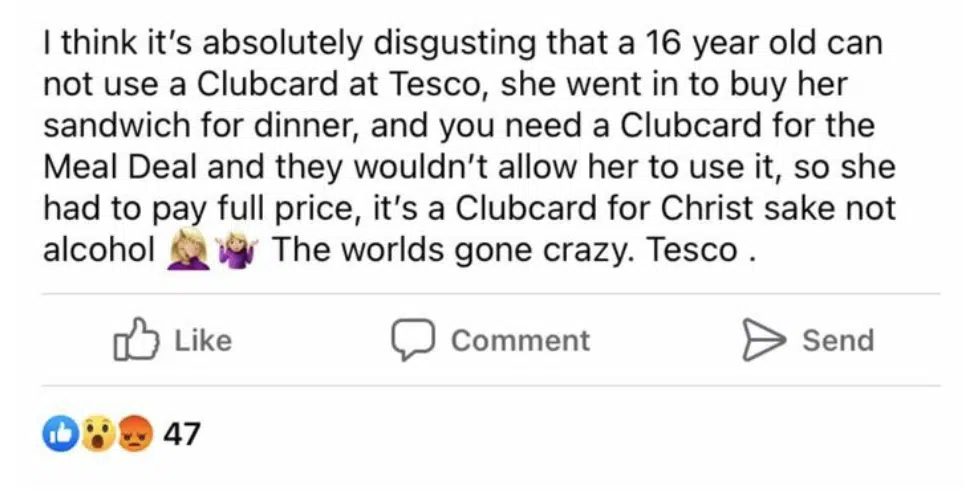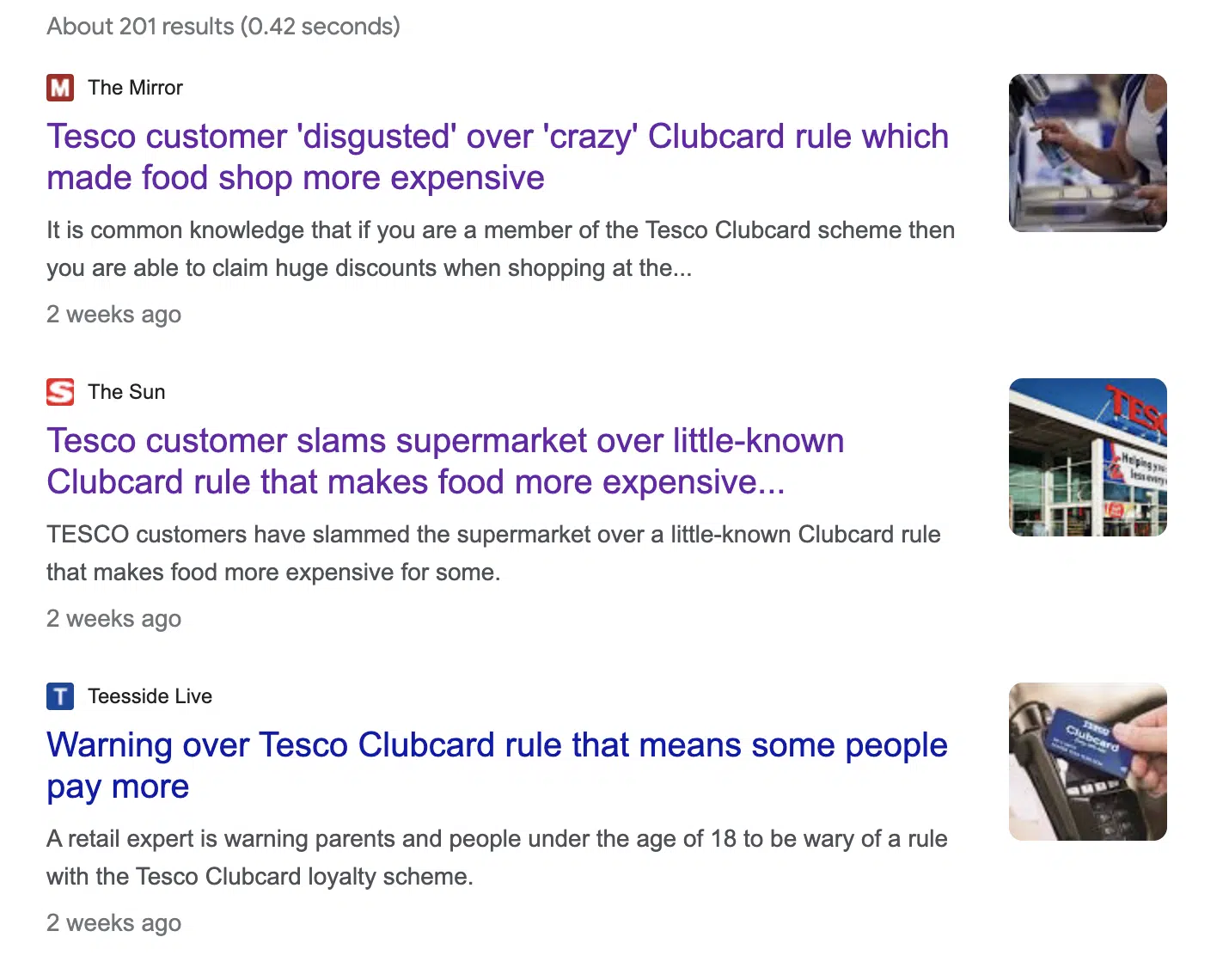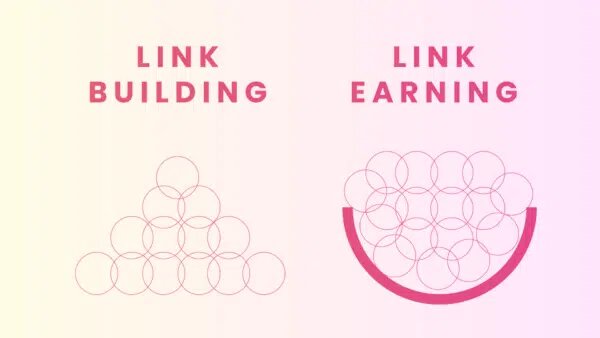Forget link building, think link earning
Here’s why SEOs should move on from building links, how link earning works and the results you can generate with a new backlink approach.
In this article, I’ll explain what link earning is, why it’s essential and the types of results you can generate.
I’ve been building links for over 20 years, and I can tell you that it never gets easier.
From shotgun outreach to guest post writing.
As an industry, we’ve been repeating the same approaches and seeing diminishing returns, or worse, being asked to hand over some cash for “admin” fees for adding your link.
The message is clear from those in webmaster power land.
Links = cash
Backlink merchants have emerged in droves to capitalize on this trend, acting as the middle person, the negotiator, and the heavy lifter.
How long before generative AI takes over the whole process of identifying link opportunities, writing blog posts, and even email sites for you?
Link building is the next big AI task, probably losing link value in the process.
Enter link earning.
That old-fashioned idea that your business and content earn links for you based on merit, not money.
And buckle your safety belts because link earning is coming, and either you’re onboard, or you’ll get left behind.
Link earning: You have to make it and can’t fake it
Back in 2021, Sparktoro CEO Rand Fishkin suggested that inferred links would replace the link graph in the future, saying:
“If you pay an SEO agency to get you 50 “high-quality links” a month for $5,000 and refuse to pay a digital PR agency to get you 10 mentions in relevant publications for the same price, I’d argue you’re making a very unwise tradeoff.”
The idea of inferred links is simple to grasp.
If Google is good enough to understand entities, it can crawl a page and understand when a business is being discussed online.
Of course, this turns the SEO game into the “Upside Down” from Stranger Things.
Because the ethos should be that mentions matter, links might happen.
I can hear an old-school SEO spitting out their coffee with rage.
Sure, we all like links, but what if they were nice-to-haves, not must-haves?
Wouldn’t that change a business’s approach to link building?
How to earn links today and beyond
If I were to push a motto for SEO this year, it would be “Move fast, create things.”
Create content.
Create stories.
Create link opportunities.
When it comes to link earning, it’s these things that matter.
But first, let’s throw the old-hat methods under the bus.
Forget about creating content and promoting it to death
This is what the gurus teach, and it has some merit. If you spend hours creating a piece of fantastic content, you should spend far longer promoting it.
And sure, this can work.
But it has some significant drawbacks. Just because your “ultimate guide” might be a beast of an article, it ignores a basic rule of thumb.
The article is entirely based on your ranking goals.
Your promotion is based on the “Hey, I wrote this, you might like it too” remit in the hope they’ll share, mention, and even link to your content.
People are busy. People are self-interested.
The chances your content is so good that they’ll log into their site and give you a backlink is highly unlikely.
Your working theory should be that even the best content gets ignored.
Forget about guest posting for links
I’m a fan of guest posting. This is a guest post.
Guest posting helps to build brand fame.
But for links?
Come on. We’ve been told long ago to put a fork in that type of link building because it was “done.”
And yet, guest posts are still the go-to link method for most SEO agencies and websites.
The idea that a link in a post, buried in the deepest darkest corners of a low-traffic website, has little value should not be a shock.
But guest posting is easy.
“OK, clever SEO, tell us what’s better?”
The solution is a mindset that businesses can adapt to easily.
“How do we earn links?”
Link earning = Thought leadership, data and stories
Link building is selfish. You go to webmasters, interrupt their day and say in a Golum-esque voice.
“Look at my precious content. Reads it; you will. He wants it you do. Links to it, you tricksy little webmaster.”
No wonder people ask for money for link placements.
Link earning is different.
It’s adding to the conversation.
It’s taking the expertise in a business and helping others with that expertise.
It’s creating stories from data that people will want to hear about – not forcing content down throats.
Is that romantic? Maybe.
Is that effective for SEO? Heck, yeah.
The benefits of link earning
I don’t need to explain the whole E-E-A-T thing.
But too often, we don’t think about how building this takes place.
You build E-E-A-T through the network effect.
- Mentions online.
- Links.
- Content on your site.
- Content on the sites of others.
You build connections with other web properties.
But the quality and speed that this happens is where specialists come in.
- Mentions in authoritative web properties.
- Links from authoritative websites.
- Quality content on your site.
- Quality content on the sites of others that shows your expertise.
The benefits are clear:
- Faster rankings.
- Increased traffic.
- Traffic referrals.
- Brand growth.
- Exposure to a new audience.
- Reach.
But let’s look at an example of link earning in the wild.
Link earning creates new traffic
 100vw, 1080px” data-lazy-src=”https://searchengineland.com/wp-content/seloads/2023/05/image-39.png.webp” /></figure>
</div>
<p>To give some context to this image, one of my agency’s clients is a discount code website.</p>
<p>Typically, these types of sites are not glamorous and difficult to build links, and you’d have to rely on those traditional methods, as we discussed earlier.</p>
<p>Here’s how link earning handles this.</p>
<p>The team spotted an interesting post on social media about a supermarket loyalty card not being allowed to be used by those under the age of 18.</p>
<div class=)

When it comes to link earning, speed of action matters.
Having spotted this post on social media, our team quickly leveraged our client’s brand and expertise with a pitch to journalists.
The result: more than 50 links, referral traffic to the client’s website and media mentions.

But are do-follows important?
The demise of ‘do-follow’ links
“Do-follow” links (i.e., links without the nofollow attribute) were all the rage once. Today, they usually scream “link buying.”
That’s not to say such links don’t happen. They do and, of course, they add value.
But any half-decent SEO can spot a paid link from one naturally occurring, and if the SEO can, then so can Google.
In 2022, Google’s John Mueller said:
“Well, it’s something where I imagine, over time, the weight on the links. At some point, it will drop off a little bit as we can’t figure out a little bit better how the content fits in within the context of the whole web. And to some extent, links will always be something that we care about because we have to find pages somehow. It’s like, how do you find a page on the web without some reference to it? “But my guess is over time, it won’t be such a big factor as sometimes it is today. I think already, that’s something that’s been changing quite a bit.”
That was 2022, and Google has been moving fast with updates on everything from link spam to content.
Our data results show that do-follow links are definitely nice and need to have. But no-follow links do impact websites.
‘No-follows’ lead to fame, fame leads to ‘do-follows’
There are plenty of views on nofollow links not passing any ranking signals to websites.
Our in-house data disagrees with this view, but we also must remember that nofollow links in authority websites matter for more than just the links.
These sites are in the business of generating traffic, and this means real humans (remember them?) visit webpages.
This causes click-throughs to websites, searches, online conversations, talks in forums, group chats, emails, dark social and human conversation.
These nofollow links end up causing natural fame, which turns into organically created do-follows.
Link earning is a fame game
Fame makes everything easier.
A good news story can sell out products in a day.
A social influencer can make you famous with a single post.
And links and mentions, whether they follow or not, help build fame.
Link earning is the game of fame.
It’s kickstarting traffic and links. It gets people talking.
Of course, the other option is sending that outreach email. And yes, there’s a time and a place for that.
But should that be your go-to?
I don’t think so. Choose fame.
Choose link earning.



